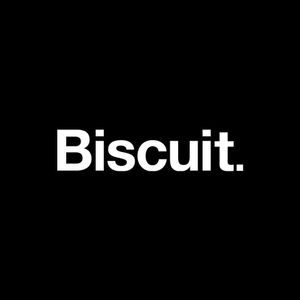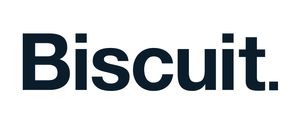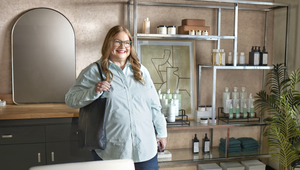
The Directors: Rosie May Bird Smith

Rosie May Bird Smith is an emerging British comedy director with a strong unique style and ability to blend humour with heart. She is an award-winning writer and director working across film and commercials and specialises in script writing, film craft, and comedy.
Rosie began her career as a creative, quickly gaining attention for her sharp wit and clever storytelling working on a range of high-profile films for some of the world’s largest and most influential brands. Her work has been featured at numerous film festivals and online platforms and in 2022 she was awarded Best Young and Emerging Talent at the British Arrows and ranked in the top three films globally for Best Use of Humour at the Kinsale Sharks.
Her latest short 'Herd Immunity' has received global recognition, winning Gold at the British Short Film Awards, alongside a 1.4 award for Brilliant Filmmaking and Best Film and Best Director at the Papaya Films Young Directors Gala. Rosie was named in Campaign Magazine as one of the Future Leaders and Rising Stars of 2022. Her first commercial campaign for Asda received four British Arrow nominations and earned her a Silver Young Director Award in 2023.
Her recent spot for Ginsters, 'Taste the Effort', introduced us to Merryn, a delightful, if a bit obsessive, Cornish farmer. Whatever guise it takes, Rosie’s work is always interesting, unexpected, and personified by a certain wit, reflecting her determination to make her audience laugh, sit up, and pay attention.
Rosie is currently in development on a short narrative film.
Name: Rosie May Bird Smith
Location: London
Repped by/in: Biscuit Filmworks UK & US
LBB> What elements of a script sets one apart from the other and what sort of scripts get you excited to shoot them?
Rosie> I get excited by scripts that are conceptually very straightforward. One simple takeout, one main joke, one overarching theme. I feel like they’re always the easiest to craft. I also love scripts with one protagonist that you get to spend a lot of time with and get to know a bit; developing a very interesting, quirky character is right up my street.
LBB> How do you approach creating a treatment for a spot?
Rosie> I start by bunging a load of random notes onto a page - who these characters might be, where they work, what they have for tea, etc., and then attempt to formulate that into some sort of readable sense. I also really like to go into detail rather than keeping it too generic because any old chap can say that ‘it’ll be nicely lit’. I normally trawl through shots I’ve got saved from films I love and start compiling Spotify playlists for inspiration, too.
LBB> If the script is for a brand that you're not familiar with/ don’t have a big affinity with or a market you're new to, how important is it for you to do research and understand that strategic and contextual side of the ad? If it’s important to you, how do you do it?
Rosie> It’s obviously important to do your homework. You don’t want to be rocking up to the call thinking you’re selling period pads when it’s cat treats. Poor example, but you get where I’m going with this… I think you need to know all the brand’s previous work, too, to get to grips with their tone of voice and work out how far you can push it.
LBB> For you, what is the most important working relationship for a director to have with another person in making an ad? And why?
Rosie> Blimey that’s a tough one. Agency side - I’d say it’s the writer. When you’ve been working on an idea for often up to a year, you want someone you know is going to come in and come up with wild and wonderful suggestions but also respect how much time has already gone into it and not completely ditch everything you’ve done so far.
Production-wise, I’m pretty specific about set design and get quite fussy when it comes to picking out lamps… so probably the production designer. And the DOP. And the producer, obviously. And the casting director? I’ll stop now.
LBB> What type of work are you most passionate about - is there a particular genre or subject matter or style you are most drawn to?
Rosie> I really like absurdism that is rooted in reality; something that is absolutely ridiculous but could feasibly happen. I love work that looks at humanity and all the weird things that we do and questions them - instead of accepting them as gospel. I also really like straight humour, nothing that’s too gaggy or over the top.
LBB> What misconception about you or your work do you most often encounter and why is it wrong?
Rosie> Often if you don’t have something on your reel then there’s an assumption you can’t do it. Like short idents for example. I’ve sometimes received the ‘Oh but she hasn’t done anything that’s five seconds long so I don’t think so’, line. I’ve often heard this from other directors, too - they’ve shot a feature for example, and a load of branded work, but never a car advert so they get vetoed. I don’t love that - we should try and look at the bigger picture.
LBB> Have you ever worked with a cost consultant and if so how have your experiences been?
Rosie> When I worked in an agency, there was always a cost consultant involved. But I tended to stay away from those conversations… Until it came to me begging for some more money for some better music.
LBB> What’s the craziest problem you’ve come across in the course of a production – and how did you solve it?
Rosie> We were once shooting with a herd of sheep. We then received a letter from the council the night before the shoot saying we couldn’t use that herd of sheep as they didn’t hold film licenses. Aka - they weren’t professional actors. So, in about 12 hours we had to recruit a herd of sheep to travel down from Lincoln and star in our film. And when I say ‘we’ - I mean my production team. So, did I solve it personally? No. I did add some unnecessary panic into the mix though.
LBB> How do you strike the balance between being open/collaborative with the agency and brand client while also protecting the idea?
Rosie> I think it’s really important to have a very open chat on that first call. If I see it a bit differently or think some bits might need tweaking, I discuss it early on and then if they absolutely hate everything I’ve said and want to get rid of me they can do that before it’s too late… Usually from there though, you’re normally on the same page - or at least you hope you are if they’ve hired you.
There’s always a point though where you need to step back because, at the end of the day, it’s not yours. I’m still trying to figure out where that point is though as I do like to loiter a little.
LBB> What are your thoughts on opening up the production world to a more diverse pool of talent? Are you open to mentoring and apprenticeships on set?
Rosie> Oh, 100%. Unless we want to sit down and watch the same film on repeat, it’s crucial that we hear from different people. I love chatting with people looking to get into the film industry and attempting to impart some wisdom, and I’ll never stop wanting to work with people with more experience than me. You can never know enough.
LBB> How do you feel the pandemic has influenced the way you work? Have you picked up new habits that you feel will stick around for a long time?
Rosie> It’s stopped me running around like a blue-arsed fly for one. Pre-pandemic I felt like I always had to be doing something to be productive and little did I realise, it was the opposite. I got more done in COVID than ever before because I just had a moment to sit with my thoughts and then write them down. I’ll always try and hang onto that now, rather than cramming every second of my day.
LBB> Your work is now presented in so many different formats - to what extent do you keep each in mind while you're working (and, equally, to what degree is it possible to do so)?
Rosie> I keep them in mind - of course. TV, VOD, YouTube, 6x9, 9x6, 6000x9000000 or whatever. But in the end, they all blend into one a bit. So, I try and just think about what would best serve the idea - what lens would make the idea look the most filmic, do I need more headroom or can I go wider, etc. - and try not to get too bogged down in all the technicalities.
LBB> What’s your relationship with new technology and, if at all, how do you incorporate future-facing tech into your work (e.g. virtual production, interactive storytelling, AI/data-driven visuals etc)?
Rosie> I’ve literally only just been convinced to swap my 90+ page paper booklet of all my prep that I like to lug around on set and scribble on in real pen… for an iPad. So, I’m probably not the best person to ask about future-facing tech….
LBB> Which pieces of work do you feel really show off what you do best – and why?
Rosie> The Ginsters spot I shot last autumn is a good reflection of the kind of work I like to do - a weird and wacky story that could feasibly happen in the real world. I’m also pretty happy with our latest Andrex spots as they do the whole comedy thing but in a cinematic way, which I think nails where I’d like to be.














